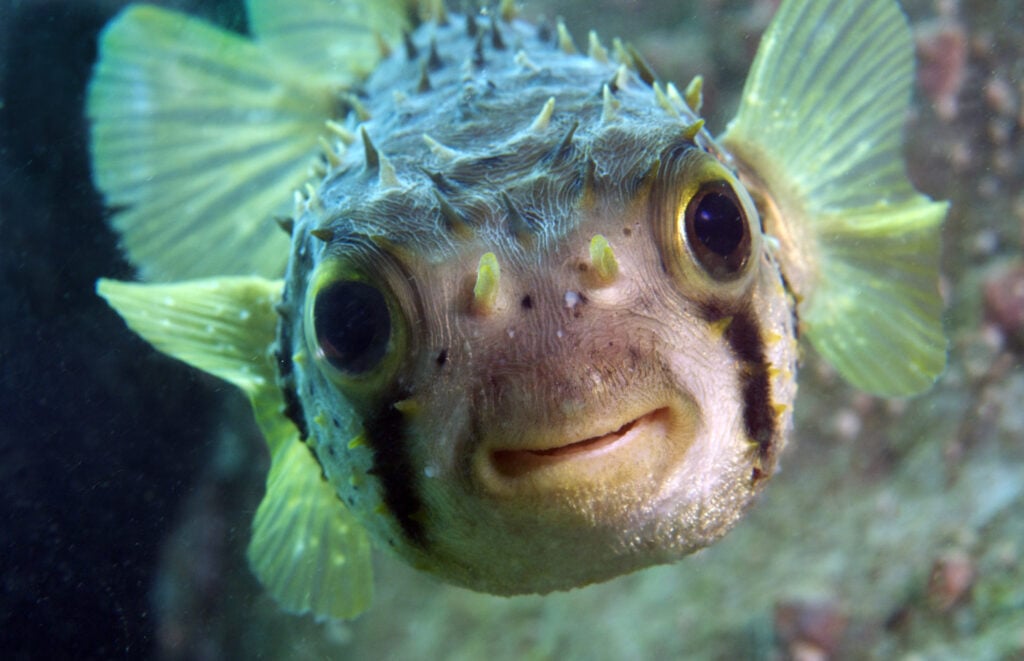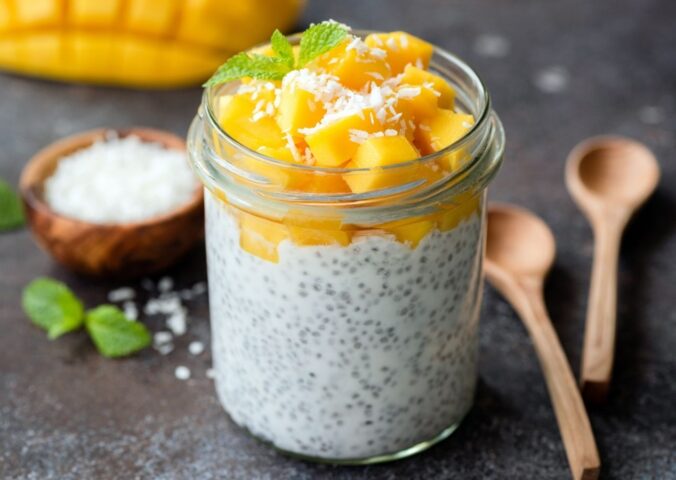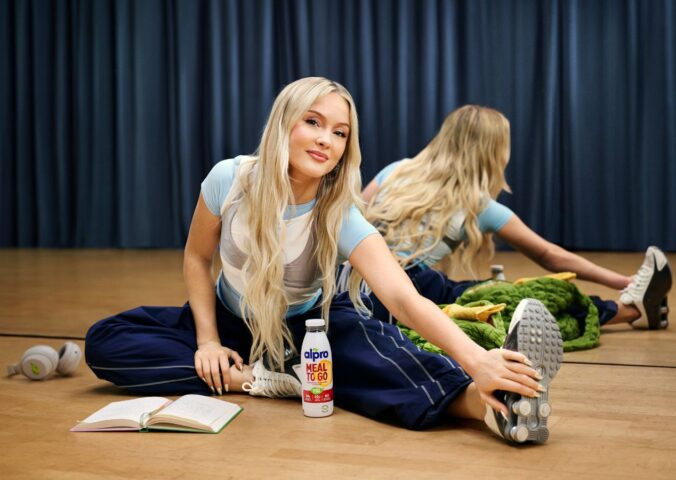As the hit documentary Seaspiracy continues to engage people around the world with the impact fishing is having on the ocean, people are rethinking their consumption of fish.
While fish continues to be labelled a health food – what does the science really say?
Is fish healthy?
We need fats called essential fatty acids for our cell membranes, brain, and nervous system. They help regulate blood pressure, blood clotting, and immune and inflammatory responses. Because we can’t make them in our bodies and must get them from food, they’re labeled ‘essential’. ALA is an omega-3 essential fatty acid. It is found in plant foods such as flaxseeds, rapeseeds, soya, walnuts, and their oils.
We convert it, in our bodies, into the longer-chain omega-3s EPA and DHA. These are also found in oily fish, which they obtain from algae. Conversion rates in the body can be low, which is why some people insist that fish oils are essential for health. They are not, in fact, they could be doing more harm than good.
UK guidelines recommend we should eat at least two 140g portions of fish a week, one of which should be oily. This contributes to the widespread belief that eating oily fish or taking omega-3 fish oil supplements reduces our risk of heart disease, stroke, and death. The research tells a different story.
Gold standard research
Cochrane reviews are regarded as the highest standard in evidence-based research. A 2018 review found that increasing EPA and DHA from oily fish or fish oil supplements had little or no effect on heart health.
These findings are consistent with many other high-quality reviews. They also found that ALA from plant foods may slightly reduce the risk of cardiovascular events and arrhythmia (abnormal heart rhythm).
Another 2018 review, this time from the British Journal of Nutrition, found that higher ALA intakes from plant foods were linked to a reduced risk of heart disease. So, it seems you’re better off with plant-based omega-3s. In fact, over the past two decades, many studies have shown a similar lack of effect from fish oils and a beneficial effect from consuming ALA directly from plant foods.
Mercury rising
Some studies show that oily fish, and fish oil supplements in particularly, can actually have the opposite effect than that claimed. Moreover, they can instead increase the risk of cardiovascular events.
The American Heart Association says this might be explained by the damaging effects of methylmercury. This is an environmental contaminant found in fish. It can be explained in a study of men in Eastern Finland, where mercury levels in fish are high. The study found that mercury levels in their hair and the amount of fish they ate were linked to an increased risk of cardiovascular death.
In other words, those eating the most fish also had the highest levels of mercury in their hair and the highest levels of cardiovascular death.

Toxic shocker
Toxic pollutants contaminate the world’s oceans. They include methylmercury, polychlorinated biphenyls and dioxins, and many act as damaging neurotoxins.
They can accumulate as you move up the food chain, especially in oily fish, cancelling out any supposed beneficial effects of omega-3s.
Conflicting advice
We have an extraordinary position in the UK. Pregnant and breastfeeding women are advised to eat oily fish. This is because omega-3s can help a baby’s nervous system develop.
However, all girls and women who are breastfeeding, pregnant, or planning a pregnancy are warned not to eat more than two portions of oily fish a week. It also applies to those who may one day in the future want to have a child.
The reason for this advice is that pollutants in the fish may build up and seriously affect the baby’s development in the womb. And there are more warnings. For example, children, pregnant women, and women trying to get pregnant are also told to avoid eating sharks, swordfish, or marlin. This is because they contain more mercury than other fish and this can damage a developing baby’s nervous system.
So, damned if you do, damned if you don’t!
Oily fish includes: herring, pilchards, salmon, sardines, sprats, trout and mackerel. However, the list of fish to limit or avoid has been extended to include some white fish. They may also contain similar levels of pollutants – sea bream, sea bass, turbot, halibut and huss (dogfish). Yet, it’s supposed to be a health food.
Norovirus
Pollutants are not the only problem as filter-feeding shellfish, such as mussels and oysters, can accumulate bacteria and viruses from their environment and when eaten raw, can pose a direct threat to health. Norovirus is one of them and can cause fever, nausea, vomiting, cramping and diarrhoea.
It is one of the most common causes of food poisoning in the UK. It’s also called the winter vomiting bug because it’s more common in winter, although it can be caught at any time of year. Norovirus infections spread very easily from person-to-person contact or simply by touching surfaces that have been contaminated with the virus and then touching your mouth.
Outbreaks are common in hospitals, nursing homes, schools and cruise ships and can also occur in restaurants and hotels. The virus is usually mild and lasts for one to two days. Symptoms include vomiting, projectile vomiting, diarrhoea and fever. Most people make a full recovery within a couple of days but it can be dangerous for the very young and elderly people.
Many outbreaks are linked to shellfish contaminated by human fecal sources. Contamination of bivalve shellfish, particularly oysters with norovirus is recognized as a food safety risk. One study of oyster samples ordered from UK vendors found 69 percent of 630 oyster samples were contaminated with it.

Hepatitis E
Hepatitis E is endemic in many developing countries, where it is spread via a fecal-oral route. Outbreaks are relatively rare in developed countries due to better infrastructure, water supply and sanitation.
However, there have been clusters of infection in developed countries not associated with travel to areas where the virus is prevalent that are instead associated with zoonotic transmission. In the UK, there has been a steep rise in cases over the last decade.
Livestock, such as pigs, can act as reservoirs. High levels have been found in wastewater and manure from pig units. This highlights the potential for it to enter watercourses and then accumulate in shellfish. Infectious hepatitis E virus has been found in animal feces, sewage water, inadequately treated water, contaminated shellfish, and animal meats.
Fish farms are not the answer
Fish farms now provide more than half of all fish consumed by humans but are certainly not the answer. These overcrowded, unnatural pens transmit disease and cause water pollution; choking marine life with persistent organic pollutants, antibiotics, chemicals from parasitical treatments, anaesthetics, disinfectants, feed additives, metals and antifoulants.
Farmed fish tend to contain less omega-3s as they are fed omega-6-rich vegetable oils in addition to fishmeal and fish oils. Yes, fish are being pulled out of the sea in order to feed farmed fish and livestock.
Our oceans are being decimated and ancient coral reefs destroyed at an unprecedented level. This is due to fishing on an industrial scale. Marine ecosystems are collapsing as bottom-trawlers plow through sea beds. Up to 90 percent of some fish species have already depleted, decimating populations of large-bodied marine animals who depend upon them.
This domino effect could disrupt ocean ecosystems for millions of years to come. The nonsensical belief that fish cannot feel pain still prevails despite abundant scientific evidence showing that fish experience conscious pain in the same way as mammals and birds. Pain is an essential element of evolution, teaching creatures which things it is essential to avoid.
Fish in the U.K.
Surprisingly for an island nation, fish is not a popular food in the UK. The average adult consumes just 54g of oily fish per week.
The good news? You don’t have to destroy the oceans, inflict pain or eat neurotoxins and carcinogens to get your essential omega-3s. Plant foods can provide more than enough to keep your heart healthy and combat inflammatory conditions such as arthritis.
Or, if you choose, you can take an algal-based vegan omega-3 supplement that supplies EPA and DHA without the risk of contamination. This is free from the ethical and environmental concerns of eating fish. Help our oceans become healthy again and leave fish alone.
Find out more about fish and health here
This article was first published by Viva!






